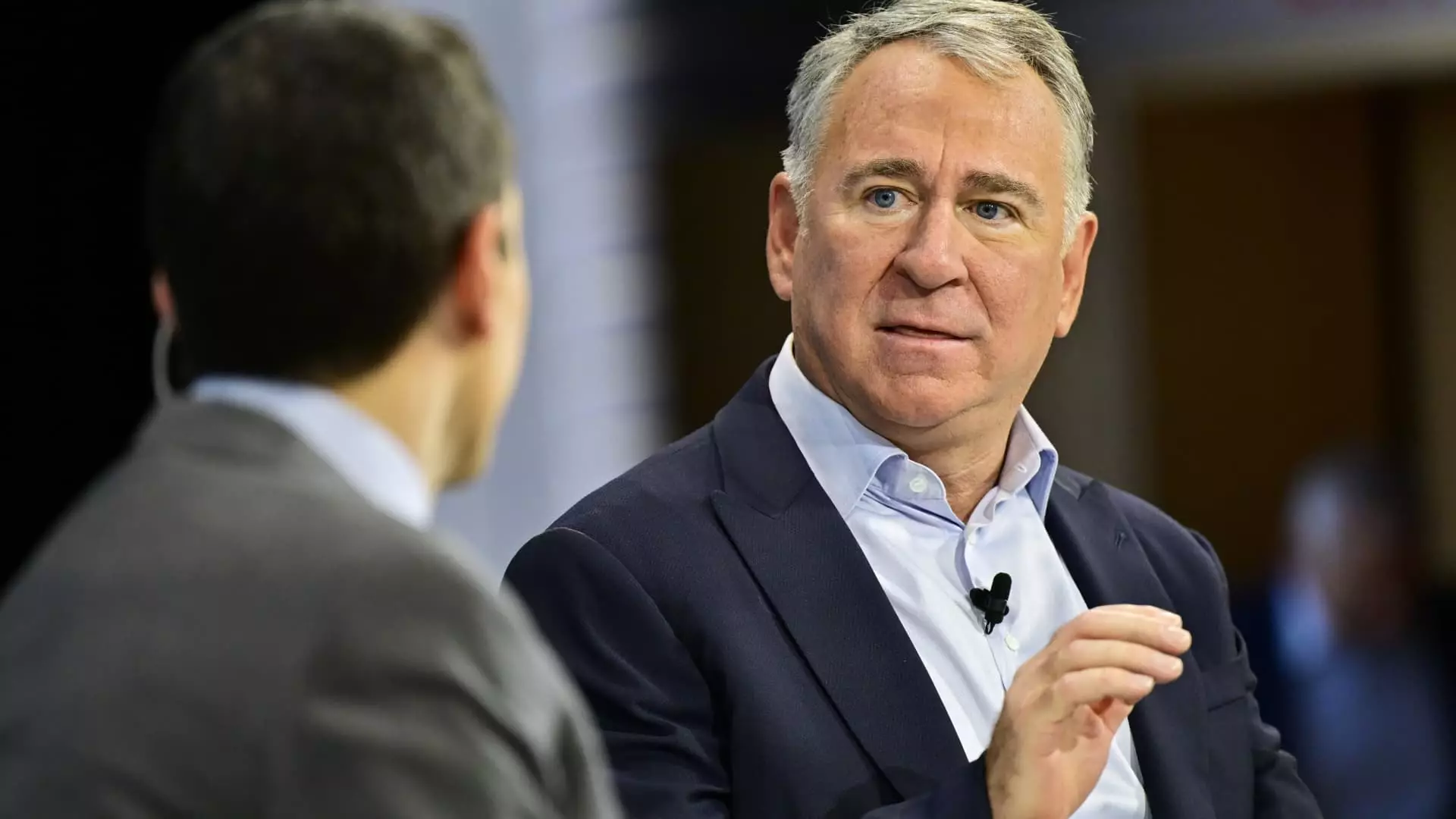In January, Ken Griffin’s prominent hedge fund, Citadel, managed to achieve a modest increase in performance, showcasing resilience within a fluctuating market landscape. Reports indicate that the Wellington fund, Citadel’s flagship multistrategy vehicle, posted a 1.4% rise during the month. This follows an impressive performance in 2024, where the fund gained 15.1%. The stability of this fund is noteworthy, particularly given the various strategies it utilizes—such as commodities, equities, fixed income, credit, and quantitative methods—all of which registered positive returns in January.
Citadel’s diversified approach appears to be yielding favorable results despite the uptick in market tension. Notably, its tactical trading fund recorded a 2.7% increase, echoing similar gains from its long/short equities strategy. Furthermore, the global fixed income segment also saw a solid return of 1.9%. With an impressive $65 billion in assets under management at the start of the year, Citadel demonstrates not just a robust financial framework but also an ability to navigate complex economic environments.
Market Reactions and Investor Sentiments
January’s market climate was marked by heightened volatility, primarily driven by investor apprehensions regarding the economic implications of President Donald Trump’s proposed protectionist policies. The fear of substantial tariffs has pervaded market sentiments, impacting trading strategies across different sectors. Concurrently, the introduction of Artificial Intelligence innovations, particularly from companies like China’s DeepSeek, introduced new unpredictability, evident from a significant sell-off in technology giants like Nvidia.
The S&P 500 index managed a commendable climb of 2.7% during January. Following an exceptionally strong 2023 and 2024, this gain not only reflects the ongoing recovery but also indicates the index’s resilience within an overarching bullish trend. Having gained over 20% across consecutive years, the equity benchmark’s performance echoes profound investor optimism, showcasing the market’s recovery landscape since the early pandemic years.
Griffin has previously voiced critical insights regarding the potential downfalls of Trump’s tariff strategies. He noted that while some domestic companies may experience short-term gains from weakened competition, the long-term adverse effects on competitiveness and overall economic productivity could outweigh these benefits. Such critiques highlight a complex understanding of how macroeconomic policies can shape market dynamics, and they provide valuable perspective for investors attempting to anticipate future economic landscapes.
Citadel’s performance amidst these turbulent conditions is a testament to its adaptive strategies and extensive analysis capabilities. As the financial market continues to evolve, the hedge fund’s ability to navigate through such challenges will be crucial for its long-term success. Investors would do well to watch how this powerhouse responds to ongoing economic shifts and emerging technological threats in the upcoming months.

